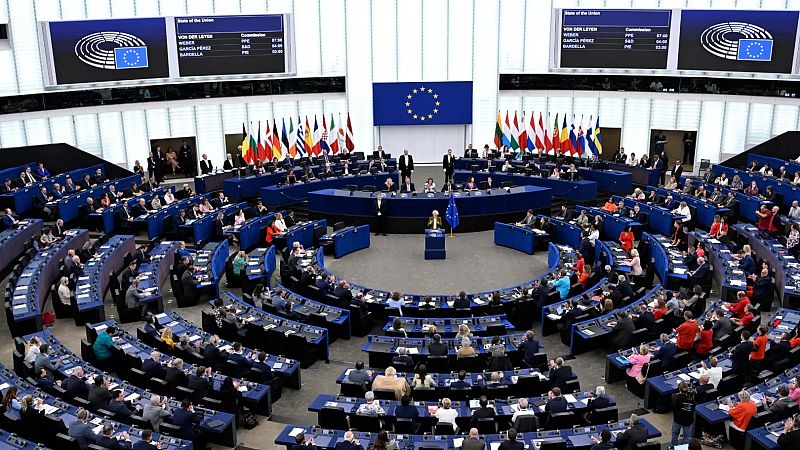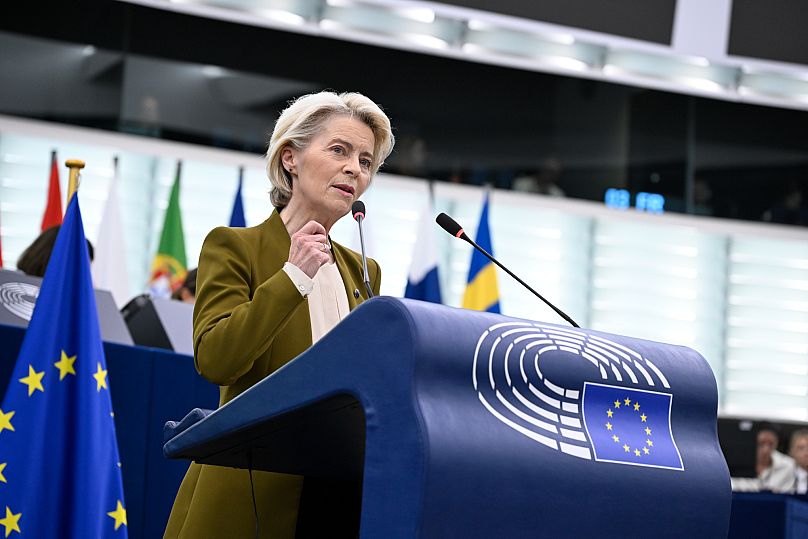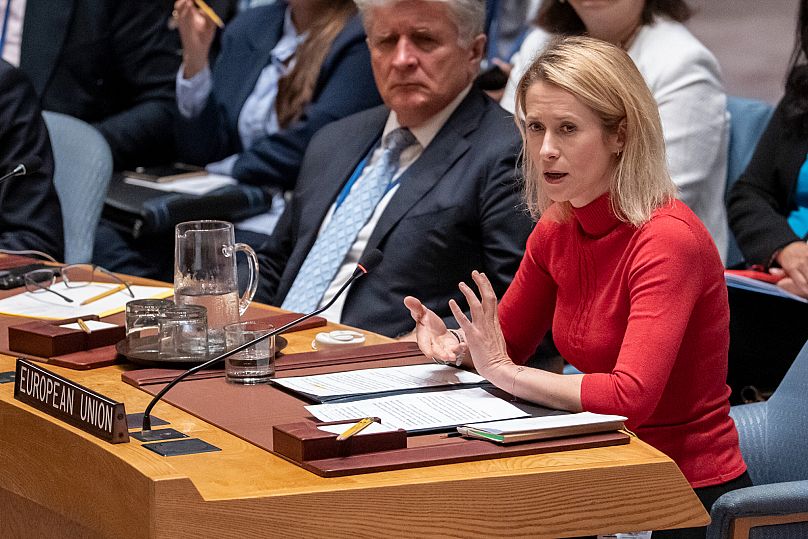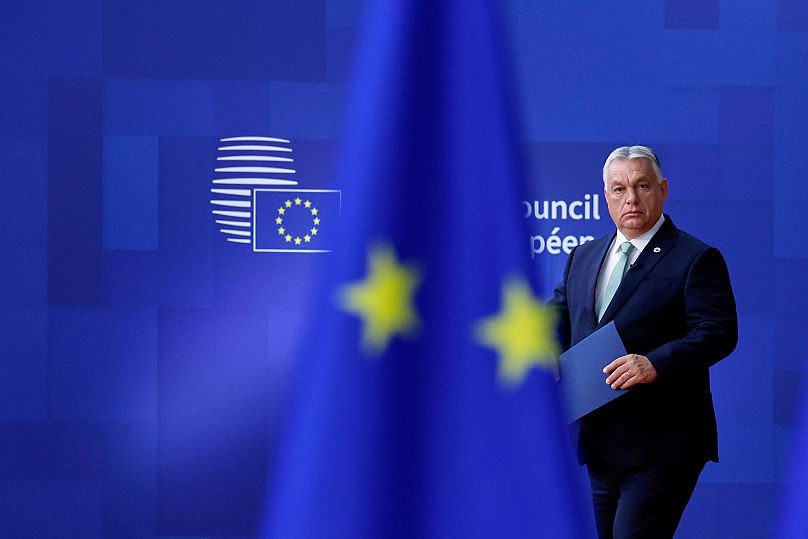To veto or not to veto? That's the big question in the EU

In her landmark state of the union address in early September, the President of the European Commission called for the abolition of the veto in EU decision-making.
"I believe we should move to qualified majority voting in certain areas, for example, in foreign policy. It is time to free ourselves from the shackles of unanimity," said Ursula von der Leyen, to the applause of several MEPs in Strasbourg.
Today, governments can exercise a veto on decisions concerning foreign affairs, enlargement and the EU budget, blocking those that do not meet or that harm their national interests. This is often what makes the EU slow in its decision-making and also makes it difficult to approve sanctions against countries such as Russia or Israel.
This is a debate that has been ongoing within the EU several years without ever amounting to anything. So why did von der Leyen bring it up again?
"I think she raised it at the end of her speech to signal that she wants to put pressure on member states that use these tactical vetoes, particularly Hungary. But there is no strong momentum behind it. The reason is that in order to move from unanimity to qualified majority voting, you first need unanimity itself," Nicolai von Ondarza of the German Institute for International and Security Affairs told Euronews.
The EU Treaties require unanimity on key sovereignty issues in order to protect all member states. In reality, however, the right of veto is a key tool for smaller member states, allowing their voices to be heard.
Other countries, such as Germany and France, are pushing for qualified majority voting in the areas of foreign affairs and security.
In fact, in 2023, Berlin initiated "The Group of Friends on Qualified Majority Voting in Common Foreign and Security."
The initiative also included Belgium, Finland, France, Italy, Luxembourg, the Netherlands, Slovenia, and Spain. However, it did not move forward.
Difficult decisions
Even larger countries that have supported the idea from time to time find it difficult in practice to make a definitive decision. We asked one expert with long experience in European Council procedures which countries are ultimately in favour and which aren't.
"It's a bit difficult to say, because there's a lot of hypocrisy. Some countries say they are in favour, but when you look at the details, they are not so sure," Jim Cloos, Secretary General of the Trans-European Policy Studies Association (TESPA), told Euronews.
"It also depends on the issue. For example, some countries believe that taxation should be decided by qualified majority, while a country like Luxembourg thinks the opposite. Yet Luxembourg would be in favor of qualified majority voting in foreign policy."
As he points out, historically speaking, countries such as Belgium, Luxembourg, and Italy are more in favor of qualified majority voting than, for example, Sweden.
In 2018, Jean-Claude Juncker, then President of the Commission, launched the idea of using the "passerelle clause" to adopt qualified majority voting in various fields, such as foreign affairs and tax policy.
However, this initiative also went nowhere.
A return to the issue
According to diplomatic sources, EU foreign policy chief Kaja Kallas placed the issue of working methods in foreign affairs and security policy on the agenda of one of the latest informal meetings of EU foreign ministers.
It therefore remains a question whether von der Leyen raised it merely as a political statement or whether there is a genuine official policy process behind it.
"There is some movement in the background, but we don't yet know if the European Commission is really willing to push for this and confront those member states that are still reluctant to move toward qualified majority voting," noted Nicolai von Ondarza.
From time to time, some countries have supported the abolition of the veto on "easy issues," such as decisions on human rights statements or certain parts of sanctions. Yet even that has not moved forward.
Old debate, new momentum?
Could such an idea succeed in the current political climate? Both analysts are rather cautious. Countries like Hungary, which currently has the most votes under qualified majority voting, will resist any moves in that direction.
"The greatest likelihood is that a long-term debate on EU reforms will emerge in the context of enlargement to Ukraine, Moldova, and the Western Balkans. I think then there will be a more serious and broader discussion about changing the EU’s policy-making and decision-making procedures," commented Nicolai von Ondarza.
However, according to Jim Cloos, changing the rules is not absolutely necessary, since consensus is the key element for the functioning of the European Union.
"The institution that dictates the EU's political direction is in fact the European Council, the heads of state and government. They decide everything by consensus. They issue conclusions by consensus. In reality, consensus has made things more resilient, because if you immediately vote on an important or sensitive issue without countries' support, I think it would create a problem," he stressed.
To move from unanimity to qualified majority voting, the EU does not need to amend the Treaty. The European Commission or a group of member states could launch such a change in the decision-making process, which would ultimately have to be approved unanimously.
However, Ursula von der Leyen's announcement has not yet been followed by any official procedure.
Today




